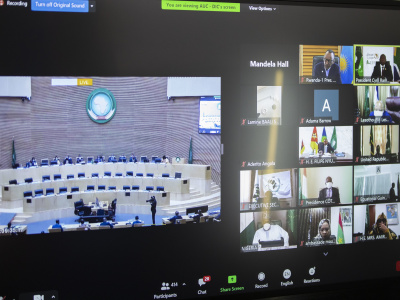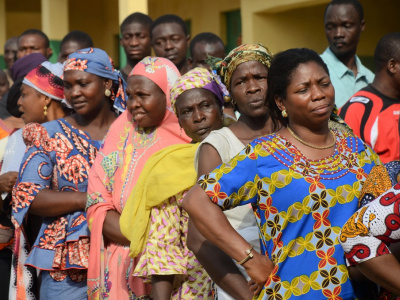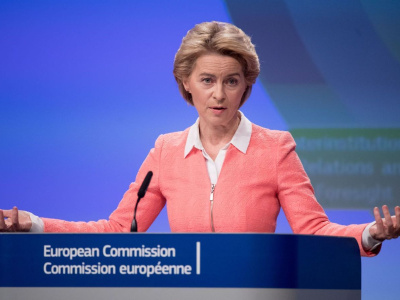
First thoughts on the European elections and development policy
The European elections present a new, more fragmented, although not revolutionary Parliament. The future European Parliament will deal with critical issues such as the negotiations of the future EU budget and who will lead EU institutions. We explore here the implications for development issues, with some clear leads and rather muddy fields still to be crossed.
Radical rethinks are unlikely in EU development policy
The new European Parliament sees the two major centre-right (EPP) and centre-left blocks (S&D) losing ground, the rise of the liberals (ALDE) and the Greens (Greens/EFA), and the far right which, although gained more seats, is fragmented and has not made a major breakthrough.
All in all, this could mean that there will not be a radical rethink of EU development policy. The priorities and principles agreed in the overarching – and, some would say, ‘catch-all’ – European Consensus on Development in 2017 will remain in line with the EU’s commitment to the 2030 Agenda for sustainable development. Yet, there might be readjustments in the weight and attention given by the EU to certain thematic priorities.
Changes in EU thematic priorities are possible
Over the past few years, there has been a significant push in EU development policy for the productive sectors and private sector development, as well as a growing concern and focus on migration and security. This is not likely to go away in the new political landscape as there is a growing consensus on the linkages and synergies between these issues.
Considering the success of the Greens and, potentially, the need for their support to form workable coalitions in the next European Parliament, climate change and biodiversity could receive much more attention – and resources. But it is still unclear how various thematic areas will be prioritised. The new Development and International Cooperation Commissioner and High Representative-Vice President (HRVP) will get a chance to offer a thematic steer in the programming of EU aid for the period 2021-2027 when taking up office later this year.
What will happen in the EU budget negotiations?
The European Parliament overall has always pushed for a larger budget. That looks unlikely to change, although some pressures from more nationalistic parties could make such a position harder to sustain. This holds also true for negotiations of Heading 6 of the EU budget on the ‘Neighbourhood and the World’, whose total amount will be impacted by the overall dynamics of the negotiations.
As always, when it comes to the size of the budget, the main fault lines will be between net contributors and net beneficiary member states. National governments will still be in the lead of the negotiations, jointly with Members of the European Parliament (MEPs). But how these trends will be taken into account remains to be seen.
The new Parliament could also seek in the negotiations on the ‘Neighbourhood, Development and International Cooperation Instrument’ (NDICI) to place more earmarking on specific thematic areas (such as higher percentages and spending targets on climate change, gender or human development). This was emphasised in the European Parliament resolution last March. Yet, one question is whether the new Parliament will remain bound by this pre-election position.
Who will get top jobs relevant for development has become less predictable
It is always difficult to predict at this stage who will get the top jobs such as European Commission president, and HRVP. The need to find new political alliances in a Parliament where, unlike previous legislatures, the two major groupings (S&D and EPP) have lost their collective majority has made it even more difficult. Could the liberals (ALDE) push for a top job such as the HRVP? Further down the line, could the Greens/EFA push for the Development and International Cooperation Commissioner?
Less prominent Commissioner profiles like the one who holds the development portfolio are usually the preserve of member states horse trading, as a consolation prize for the smallest member states. This might be different this time around with the increased relevance of international relations and development.
Beyond the HRVP and the EU Commissioners, the chairs of the Foreign Affairs (AFET) and Development Cooperation (DEVE) Parliamentary committees will also change. It will be interesting to see whether the Greens and the Liberals will make a successful play for these posts.
Also important are the Parliamentary negotiators who will defend the European Parliament’s position on the financing instruments and the amounts for international and development cooperation in the next EU budget.
The impact on UK development policy and aid could be more radical
Indirectly, it is not the European elections per se but rather the impact they might have on the next UK Prime Minister that is more consequential. While the Brexit party is the largest, the collective vote for remain parties was bigger.
There are two potential implications in this scenario. First, whether or not the new conservative Prime Minister favours a crashing out scenario in the Brexit saga. If so, this would make future UK-EU collaboration on international development less likely in the short-run. Second, UK aid could be cut and the UK’s Department for International Development (DFID) merged into the Foreign Office.
A cutting of UK aid or a merging of DFID into the Foreign Office would be felt beyond the UK in the international development sector. The UK political landscape could also drift towards a second general election or even a second referendum, to break the impasse that could halt or accelerate such changes.
When will more clarity appear?
Development and aid are not top table EU issues, so their destiny will be largely shaped by wider EU political dynamics. There is a long way ahead for the issues on the EU budget, major development priorities, key EU posts and UK-EU relations to fully unfold. Of crucial importance is the extent to which the results of the European elections will translate into national politics and will in turn impact on the dynamics and balance of power within the Council, which remains the decisive body for all the above processes.
It may take a few months into 2020, after the new Commission and the Parliament have settled in and the implications of national dynamics reach Brussels, to put a finger in the wind and feel where it is blowing.
The views expressed are those of the authors and not necessarily those of ECDPM.






